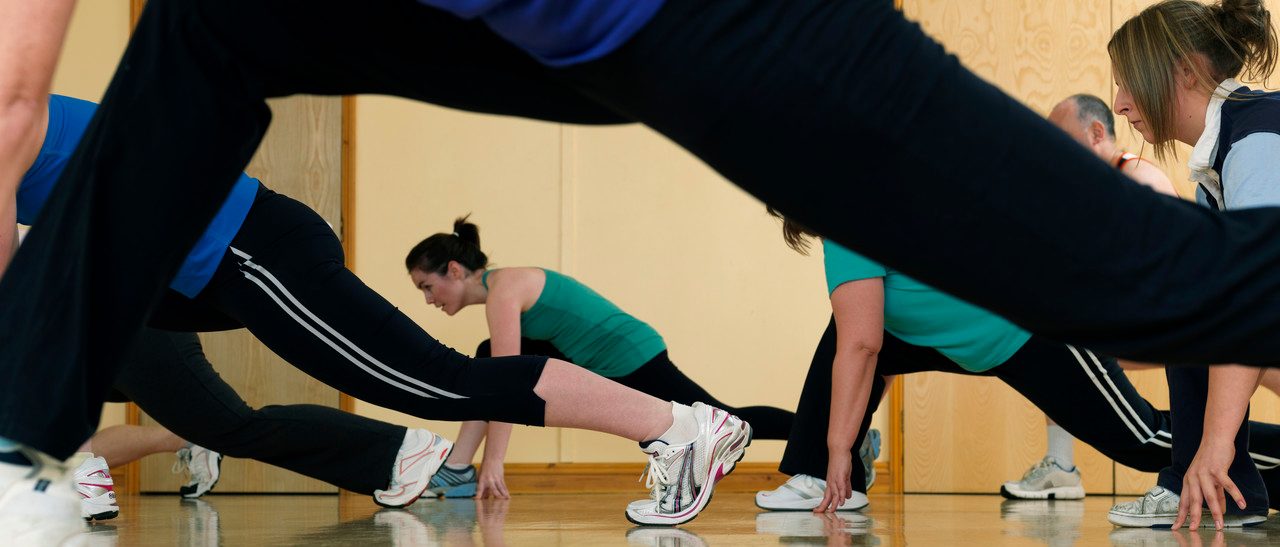Carve Out Time from Work and Go to the Gym

When we’re mentally exhausted, exercise feels harder. So it’s a good idea to exercise earlier in the day, before you start to make excuses.
Especially if you tend to work long hours, you need to exercise to protect your health.
Long hours are hard on your body. You probably know that well, but here’s another bit of proof: a 2017 study found that people who worked more than 55 hours a week increased their risk of developing a rapid heartbeat, known as atrial fibrillation, a risk factor for strokes and heart failure.
The study drew from a decade’s worth of data on more than 85,000 workers. Compared to people who worked 35 to 40 hours a week, people who clocked more than 55 hours were also more likely to be obese, depressed, or anxious, and to have risky drinking habits.
YOU MIGHT ALSO LIKE: Try a Stair Workout at Home
You can imagine the scenario: after all that work, you soothe yourself with a pastrami sandwich or pizza and beer at 9 o’clock. You decide you deserve a little indulgence, given your schedule. Then you’re fat, depressed, and anxious and develop a rapid heartbeat to worry about.
Exercise will actually do much more for your mood in the long run.
Do your workout before you’re mentally wiped out. Also this year, a research team in New Zealand reviewed the available evidence examining the effect of mental fatigue on our ability to exert ourselves physically. It turns out that we perceive exercise as tougher when we’re mentally tired.
If scientists measure your heart rate, blood lactate, oxygen uptake, and other measures of how hard you’re working, you may not really be working any harder than you would be if your mind was fresh. But you’ll think you are.
So should you exercise at dawn, first thing? Not necessarily. Some people feel great in the morning — and others tend to be night owls. Ideally, you’d go by your own body clock.
The most important rule is to get into a routine, so you stick with it. People who exercise in the morning tend to be more consistent. That may be because they get their exercise in before the work day starts and all those distractions, delays, and emergencies pop up.
If you’re slow in the morning, try exercising on your lunch hour — but before you eat, not after. Wait 90 minutes or so after a significant meal to work out.
You also don’t want to exercise right before bedtime. You‘ll be more mentally tired then, and you’ll also make it harder to get to sleep. People with a strong night-owl tendency can find themselves staying up later and later if they choose stimulating activities later in the day. Then they miss out on a full night’s sleep and feel too tired to do any exercise at all the next day.
Other advantages to exercising before the workday ends:
- If exercise improves your mood, you’ll take better attitude into more of your workday. For example, if you’re feeling frustrated on your work tasks, exercise can give you a sense of accomplishment.
- The break could free up your mind so you stop fuming over that nasty email or have a blast of inspiration.
- Exercise tends to make people want to keep up their virtuous streak and eat more healthily, so you’ll pick a better lunch or dinner.
- You’ll be able to join after-work social activities or end-of-day gossip sessions at the office without missing your gym time.
- You can mention your trip to the gym to your colleagues and impress them with your self-discipline.
First thing in the morning? Mid-morning before lunch? To fight the late-afternoon slump at 3 or 4 p.m.? Whatever counts as earlier for you, go for it.
YOU MIGHT ALSO LIKE: Are There Exercises to Lose Belly Fat?
Updated:
September 27, 2017
Reviewed By:
Janet O’Dell, RN